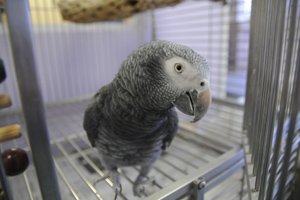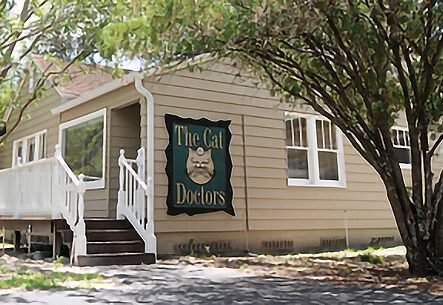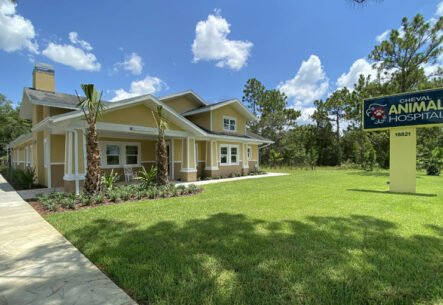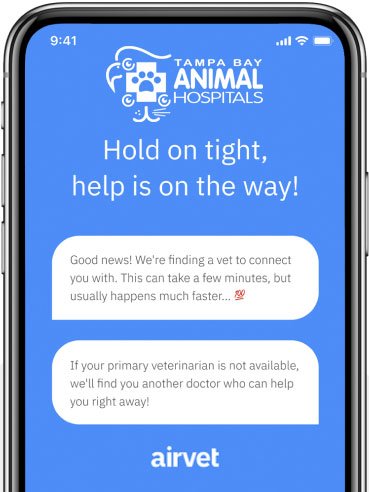African Greys

What to expect from your African Grey Parrot
African grey parrots are extremely intelligent and alert; some may be high-strung. It is best to acquire these birds at a young age, because wild-caught individuals may have objectionable personalities and vocalizations. Selective breeding for calmness is being initiated by some aviculturists. There is a tendency for African greys to form a bond with an individual family member and become aggressive toward others, especially during the breeding season. They are believed to be emotionally sensitive and may be prone to remember negative experiences and associate these with certain people and objects. African grey parrots have the greatest potential among common pet bird species for a range of vocalizations and an increasing vocabulary throughout their lives. This mimicking ability can include sounds like dripping water, flushing toilets, squeaky doors, coughs or sneezes and answering machines.
Vital statistics
- Body length: 13 inches (33 cm)
- Body weight
- Congo: 300-550 grams
- Timneh: 275-375 grams
- Age of sexual maturity: 3-6 years
- Maximum life span: 50 years
Is your African Grey a male or a female?
In most African greys, it is difficult to distinguish a male from a female based on physical characteristics; therefore, endoscopy or laboratory methods must be used for sex determination in breeding facilities. African greys prefer to choose their own mates and bond for life. Once initiated, African greys are prolific breeders and the offspring are easy to hand-feed.
What do African Greys do all day?
Because of their high intelligence, African greys are easily bored and require attention. They are relatively playful and enjoy toys in their environment, especially “puzzle” types. Because they love to chew, all toys must be free of toxic metals, hooks, sharp objects, or small, easily consumed components. Providing chew toys or fresh-cut branches from nontoxic, pesticide-free trees is encouraged for African greys. Check with your veterinarian for recommendations on locally available safe trees.
How to identify your bird
One method used to permanently identify your African grey in case of loss or escape is for your avian veterinarian to inject a custom microchip under the skin. Although individually numbered leg bands or rings may be applied, this method is unreliable and may result in potential damage to the bird.
Are African Greys tame?
Young, hand-tamed African greys adapt readily to new surroundings and handling procedures. They should be exposed early in life to novel situations (car travel, hospital visits, multiple visitors in the household, other household pets) so that they are well adjusted to these events. Adult birds are less inclined to accept environmental changes and may feather pick. Patience, discipline, leadership, a sense of ritual and the offering of rewards may be necessary to modify the behavior of adult African greys.
Why the wings should be clipped
African greys that are allowed unrestricted freedom in the home can encounter numerous physical dangers or toxins; therefore, wing clipping is recommended. Some additional behavioral benefits result from clipping the wings, as the human is perceived as dominant in the relationship. The goal of clipping the wings is not to make the bird incapable of flight, but to prevent it from developing rapid and sustained flight and to prevent escape. Because African greys are particularly heavy-bodied birds, falls from overtrimmed wings may result in severe damage to the chest.
How to keep your African Grey healthy, happy and safe
- Give lots of attention.
- Feed a fresh, high quality, toxin-free formulated diet with daily supplementation of chopped vegetables and fruit according to manufacturer’s recommendations.
- Grit is not necessary with modern captive bird diets.
- Provide clean, fresh uncontaminated water (try using water bottles) and replace twice daily.
- Offer toys, social interaction, and foraging and problem solving opportunities.
- Provide an occasional opportunity for a bath, shower or misting (at least weekly).
- Avoid spraying the house with insecticides.
Housing for your African Grey Parrot should:
- be as large as possible (minimum: 2’ x 3’ x 2’).
- be clean, secure and safe.
- be constructed of durable, nontoxic material.
- contain variable-sized perches made of clean, nontoxic, pesticide-free tree branches.
- have food and water containers placed at opposite ends of the enclosure.
- avoid having perches located directly over food containers.
- offer occasional opportunity for protected outdoor exposure to fresh air, sunlight and exercise.
African Greys are very curious and will investigate anything new in their environment. That is why it is important to prevent their access to:
- ceiling fans
- hot cooking oil
- overheated nonstick-coated cookware
- leg chains
- sandpaper-covered perches
- tobacco and cigarette smoke
- chocolate, avocado, salt, alcohol
- toxic houseplants
- pesticides
- toxic fumes
- easily dismantled toys
- dogs, cats and young children
- cedar, redwood and pressure-treated wood shavings
- sources of lead or zinc
- plug-in air fresheners
- heavily-scented candles
What your veterinarian looks for in a healthy African Grey
- Dry, open nares
- Clear, bright eyes (no discharge)
- Smooth beak
- Alert, erect posture
- Body free of lumps and bumps
- Smooth, bright feathers without color breaks, transparency or ragged edges
- Even, reptilian pattern on the feet, and nails of appropriate length
Most common disorders of African Grey Parrots
- Feather destructive behavior, such as feather picking
- Respiratory diseases
- Oral abscesses
- Malnutrition, including hypocalcemia syndrome
- Choanal atresia
- Proventricular dilatation disease (PDD)
- Chlamydiosis
- Psittacine beak and feather disease (PBFD)
- Other bacterial, viral and fungal infections
Many common disease conditions in African grey parrots are the result of malnutrition. Visiting your avian veterinarian for routine health checks will help prevent many of the above diseases and support you in having a long, satisfying relationship with your African grey parrot.
Background information
Two species of African Grey parrots, native to Africa, are commonly found in captivity: the Congo (Psittacus erithacus erithacus) with a bright red tail and the timneh (Psittacus erithacus timneh) with duller coloration. Most free-ranging species are considered threatened or endangered, and efforts to protect these birds have resulted in a ban on importation for pet purposes in the United States. High quality companion birds are available from breeders. Research has shown that African greys are capable of actual reasoning and verbal communication (beyond just mimicking). There is speculation that an imprinted male may have difficulty relating to a female bird. The current aviculture trend is to allow chicks to remain with the parents for the first few weeks of life and then be removed for hand-feeding until weaning. This parental influence may also help reduce the incidence of feather picking later in life.
Courtesy of Zoological Education Network
Tampa, FL 33615 (View map)
Tampa, FL 33647 (View map)
Tampa, FL 33617 (View map)
Tampa, FL 33647 (View map)










